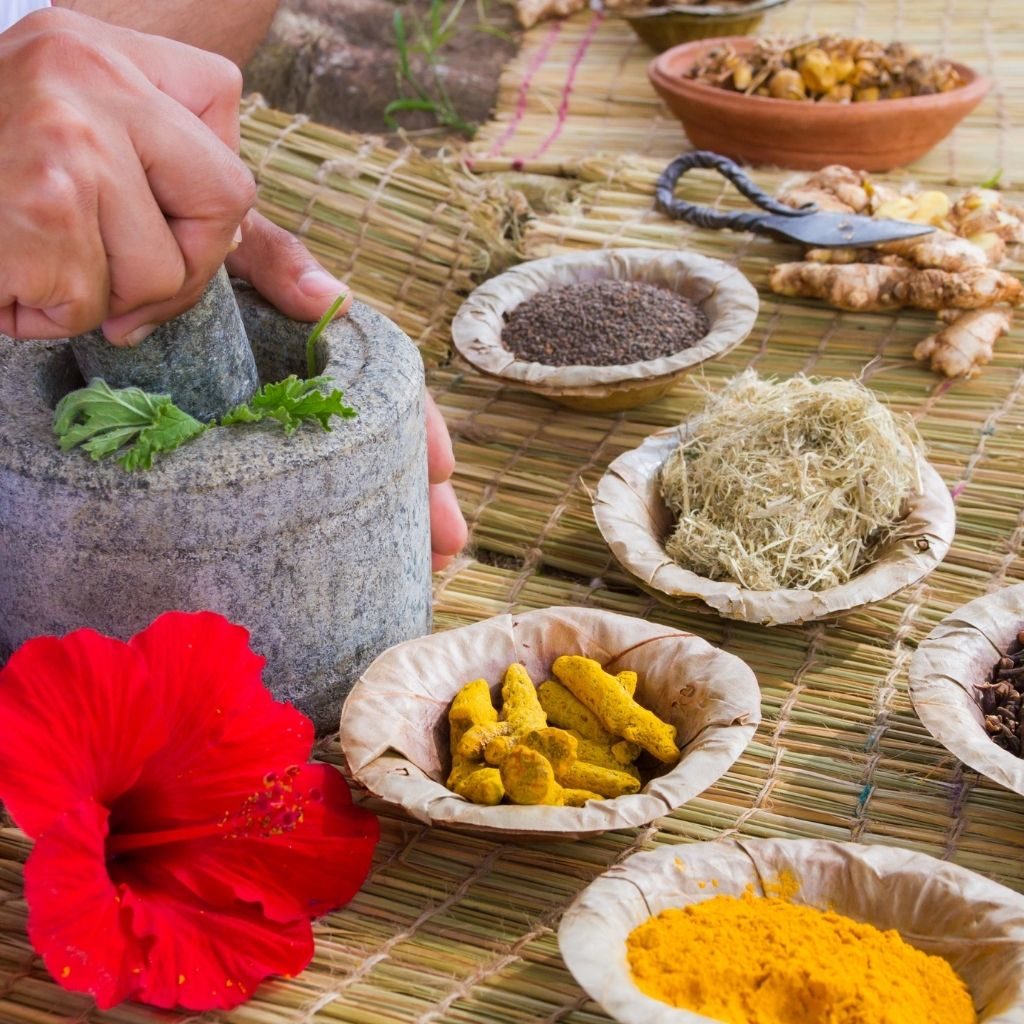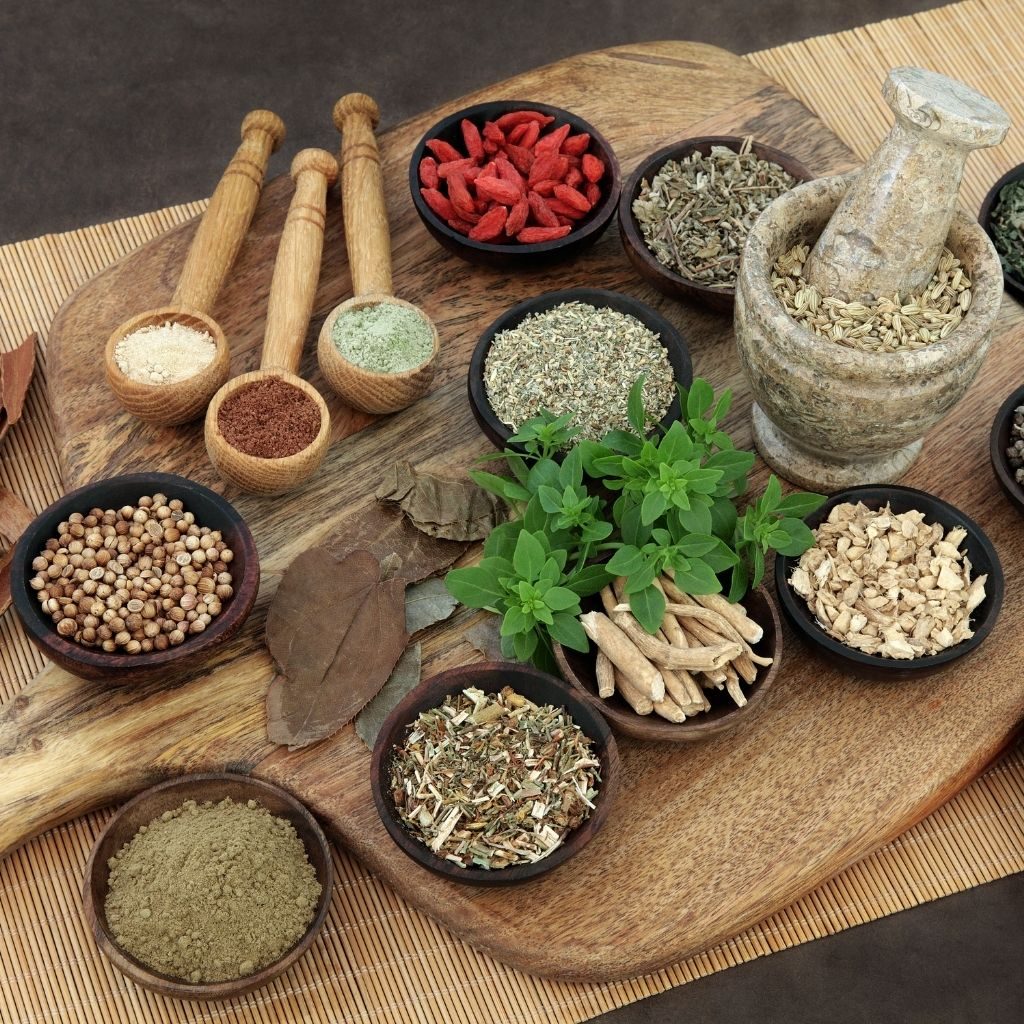Is Ayurvedic Medicine Effective for Diabetes?
Ayurveda is the oldest medical system in history, going back no less than 5,000 years. The word originates in Sanskrit and means “knowledge of life.” It is a holistic system of healing. The physical, mental, emotional, and spiritual experiences of human existence are all treated.
Ayurvedic medicine has proven its efficacy during clinical trials in mitigating diabetes, as observed in this study. The treatment has no side effects and is compatible with conventional diabetes medicines.
When treating diabetes, Ayurvedic medicine is not limited to drugs. Prioritizing beneficial nutrients and de-nourishing fats plays a central role. Various exercises and cleansing activities enhance the treatment.
Thus, the Ayurvedic way of battling diabetes is more versatile than mainstream treatment, and it takes two forms.
The first method deals with overweight and obese people. It involves the use of anti-diabetic drugs. But there is more focus on fasting and eliminating endotoxins through physical activity. Impurity-removing maneuvers such as purgation and bloodletting also play a role.
The second approach is for those who are chronic patients and are underweight. Here the focus is on the provision of nutrients and micronutrients the body can accept with ease. The goal is to control the damage done and strengthen the body’s natural defense.
While generations have used Ayurvedic healing for centuries, it is still a relatively novel alternative medicine for non-Indians.
So in this article, we will compare Ayurveda with mainstream methods of treating diabetes. We will also share reasons why you may want to consider this form of healing for yourself or one of your loved ones suffering from diabetes. And we will supply you with the answers to the most frequently asked questions related to Ayurvedic diabetes treatment.

Which treatment is best for diabetes, Ayurvedic or Allopathic?
From a medical standpoint, neither treatment holds universal superiority over the other. Effectiveness depends on the patient, case complication, and response to the treatment. But, Ayurvedic medicine has an edge regarding affordability, treatment personalization, and lack of side effects.
Before diving deeper, we need to distinguish between the two types of diabetes. Type 1 diabetes is a much rarer but much more severe form, where the body cannot produce insulin. The only way to tackle type 1 diabetes is a consistent injection of insulin.
Type 2 diabetes is different. The body produces insulin, but insulin is unable to play its full role. This limitation occurs because the body develops resistance to the hormone.
There are many allopathic medications in the market to help control type 2 diabetes. This gives physicians a lot of medication options for their patients. Flexibility and constant innovation in medicine production is a definite pro for allopathic diabetes treatment.
But this excess of choice can induce inaction in doctors, according to a Harvard article. As a result, they often tend not to adjust their treatment plan fast enough, which increases health risk for patients.
And the top advice for diabetes control offered by mainstream physicians also is to improve diet and exercise.
Ayurvedic treatment of diabetes puts such lifestyle adjustments at the forefront. It requires the elimination of alcohol from diet and reduction of nicotine. Oversleeping and daytime sleeping are not allowed. Regular meditation sessions take place to control anxiety and emotional distress.
Also, there are specific dietary and herbal recommendations in the Ayurvedic healing system. Again, these are subject to modification, depending on the patient in question.
Allopathic treatment for diabetes tends to be far more expensive than Ayurvedic treatment in most cases.
And allopathic medication can often have severe side effects. In contrast, Ayurvedic healing is free of side effects.
The process of handling diabetic patients is also different in allopathy and Ayurveda.
In a modern medical clinic, the approach relies on a limited set of tests, scans, and prescriptions. This results in a generalized, protocol-based treatment.
Ayurvedic healing, on the contrary, has a more integrated form. The patient’s examination isn’t limited to diabetes symptoms alone.
There is an analysis of every physical indicator of health, from pulse to urine and stool. Voice, vision, and touch are all observed.
And the treatment goes well beyond medicinal prescriptions. It involves drugs, diet, lifestyle, yoga, stress management, and cleansing.
There is no standardization of treatment. Each patient’s healing plan is in line with his or her unique situation.
In this way, Ayurveda is much more personalized than allopathy.
Still, some patients will respond better to allopathy and some to Ayurveda. What suits a particular patient is thus the most crucial consideration when choosing between the two.

Can Ayurveda cure pre-diabetes?
Before the formal onset of diabetes, a patient experiences pre-diabetes.
Pre-diabetes occurs when a patient’s blood sugar is higher than usual but not at type 2 diabetes level.
As per Ayurveda, the trigger for this condition is an imbalance in “digestive fire.” This imbalance points towards eating harmful foods and an unbalanced lifestyle.
The most critical factor in allowing for effective treatment in the early detection of pre-diabetes.
Visiting an Ayurveda practitioner for regular checkups can be helpful in this regard.
Since pre-diabetes is still one step away from diabetes, the main aim of treatment should be to lower and stabilize blood sugar. Ayurvedic healing’s lifestyle overhaul can be effective in limiting or reversing pre-diabetes.
The resulting diet includes fewer foods that increase body fat. Nutritional focus is on foods that are light, dry, and warm.
There is constant monitoring of sleep duration and timing.
A decline in stress through ample rest, meditation, and physical activity is a key focus area.
These factors combine to offset high blood sugar in a pre-diabetic individual in the long run.
How to cure diabetes permanently by Ayurveda
Ayurveda considers diabetes to be an incurable disease. This view is because diabetes harms almost all vital organs of the body. But, Ayurvedic treatment aims at prolonging the remission of diabetes.
There are strict lifestyle changes, better dietary habits, and herbal prescriptions in Ayurveda.
Ayurvedic treatment focuses a lot on the mental and emotional health of the patient.
Ayurvedic physicians believe that with proper treatment, people with diabetes can live like non-diabetics.
They think that patients can attain an ideal outcome by suppressing most, if not all, diabetes symptoms.

Can Madhunashini Vati help reduce sugar in type 2 diabetes?
Madhunashini Vati is a polyherbal anti-diabetic formulation.
Research has shown that Madhunashini Vati can lower blood sugar to a high degree. In one study, a patient with type 2 diabetes was prescribed gradually declining doses of Madhunashini Vati for three months. Four weeks in, a significant drop in the patient’s blood sugar level took place.
The ingredients of the formula combine to act as an antioxidant. Madhunashini Vati stimulates pancreatic cells to produce insulin.
It also acts as a hunger suppressant, helping in weight loss. This effect is crucial because the craving for harmful foods (especially sweets) can rapidly worsen a diabetes patient’s condition.
The medicine is also effective when treating other problems associated with diabetes.
These include neuropathy, in which the patient experiences numbness and tingling sensations.
In addition, Madhunashini Vati can suppress gangrene.
Which is the best Ayurvedic medicine for type 2 diabetes?
The most effective Ayurvedic herbs used in Ayurvedic medicines for type 2 diabetes treatment are as follows:
- Gymnema Sylvestre (Gurmar)
- Coccia Indica
- Azadirachta Indica (Neem)
- Morus Indica (Mulberry)
- Fenugreek Seeds (Methi)
- Karela (Bitter Gourd)
- Eugenia Jambolana
It is best to consult an Ayurvedic physician to adjust quantities to be taken or take formulations based on these herbs.
Conclusion
The ancient healing system of Ayurveda has precise prescriptions for dealing with diabetes. The approach it takes goes beyond the use of medicines and impacts lifestyle and overall health, both physical and mental.
Although Ayurvedic treatment of diabetes is not commonly known in the West, research work already indicates its effectiveness for both type 2 diabetes and pre-diabetes. It provides an affordable and personalized alternative to allopathic treatment. The medicinal side of the treatment is all-natural and thus free of side effects.
However, going for allopathic or Ayurvedic treatment should be based on each patient’s response.

